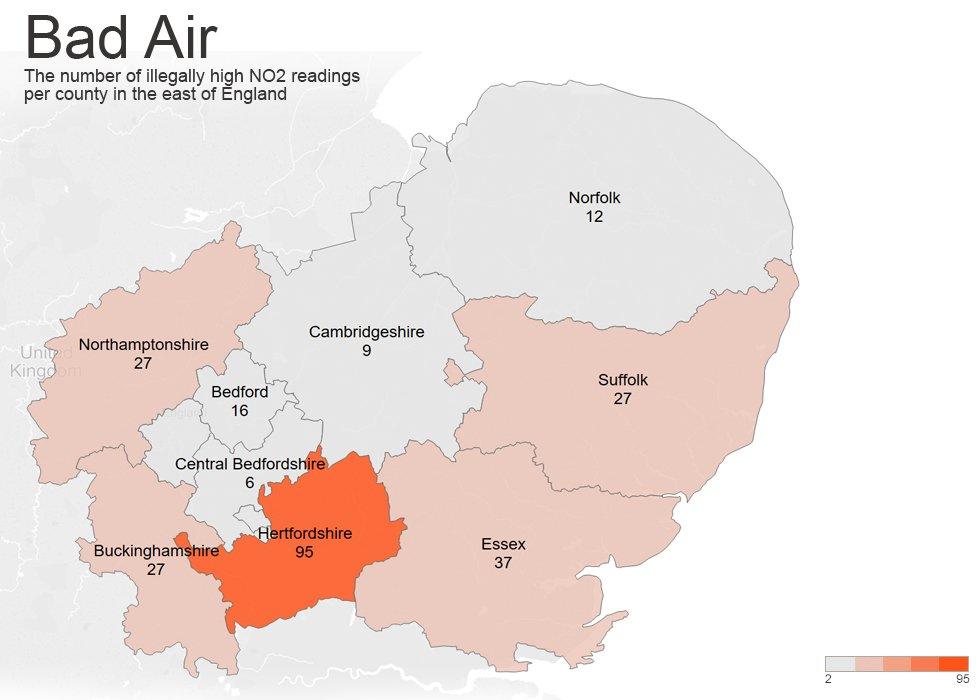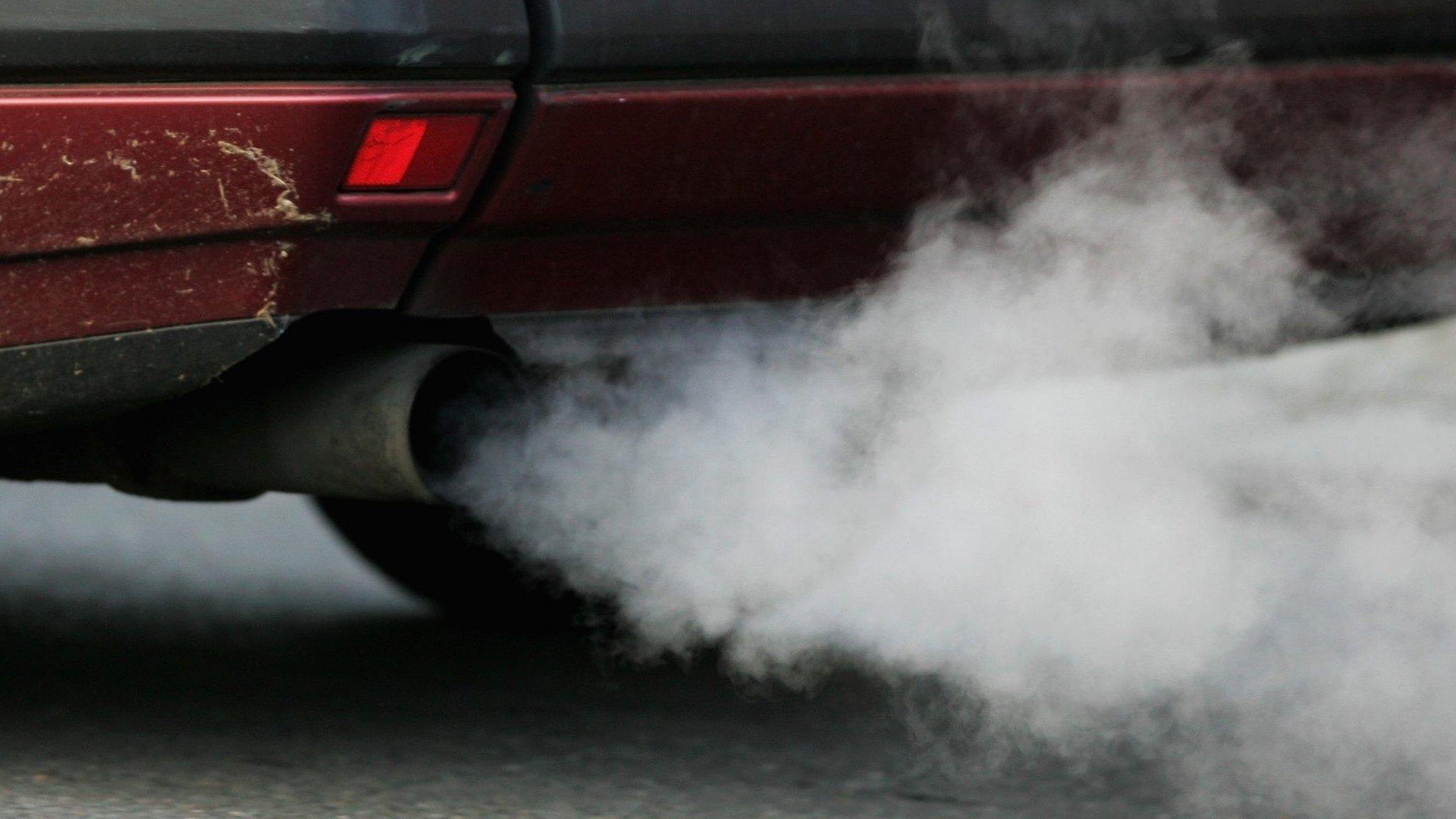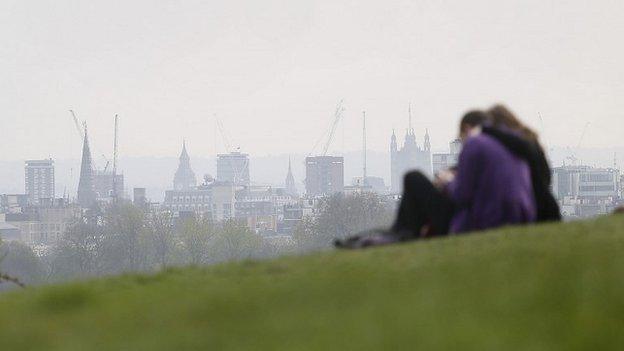East England towns and cities 'have illegal NO2 levels'
- Published

The highest nitrogen dioxide readings recorded at various towns and cities in the eastern region. The legal limit is 40 micrograms in each cubic metre of air
Illegally-high levels of nitrogen dioxide were recorded at more than 250 sites in the east of England, it has emerged.
The legal annual mean limit is 40 micrograms of nitrogen dioxide (NO2) per cubic metre of air (µg/m3).
ClientEarth, a group of environmental lawyers, is planning High Court action against the government over illegally high readings.
The government said it supported local authorities to tackle air quality.
NO2 is released when fuels such as car diesel or in central heating boilers are burned. There is evidence high levels of NO2, external can inflame the lungs and cause long term health issues.

The number of illegally high readings in the various counties of the east of England
According to research by BBC East, levels of more than 70 µg/m3 have been recorded in Waltham Cross, Bishop's Stortford, external, Sandy and Watford, with illegal readings taken in places like Castle Meadow in Norwich and the taxi rank in Newmarket, external.
The figures, although illegally high, are a far cry from some of the readings found in central London where the average annual level of nitrogen dioxide (NO2) in Grosvenor Place, near the Queen's central London residence, reached 152 µg/m3 in 2014.
Illegally high readings have also been frequently recorded in cities such as Leeds, Birmingham, Southampton, Nottingham and Derby, external.
Alan Andrews, a lawyer with Client Earth, said they had been fighting a legal battle with the government for five years because "levels of air pollution in towns and cities across the UK are above legal levels".
'Create healthier air'
He said Client Earth was now planning High Court action against the government because its plans to deal with the problem were "just not good enough".
"Air pollution is one of the biggest public health issues we face as a society," he said.
"A plan which thinks it is okay for us to be breathing illegally high levels of pollution until 2020 to us isn't good enough and we're pretty confident judges looking at it will feel the same way."
A spokeswoman for the Department for Food and Rural Affairs, said: "Our plans clearly set out how we will improve the UK's air quality through a new programme of Clean Air Zones, which alongside national action and continued investment in clean technologies will create cleaner, healthier air
- Published13 January 2016

- Published29 April 2015
